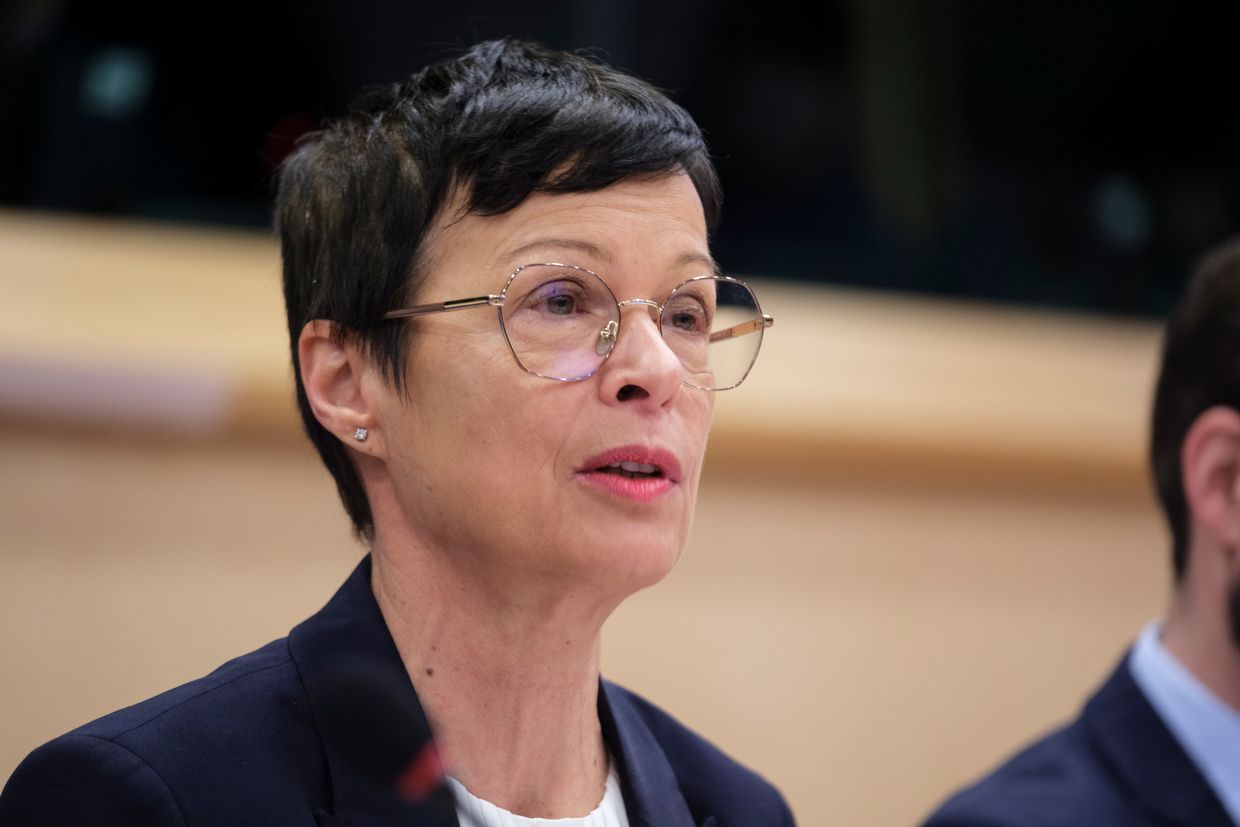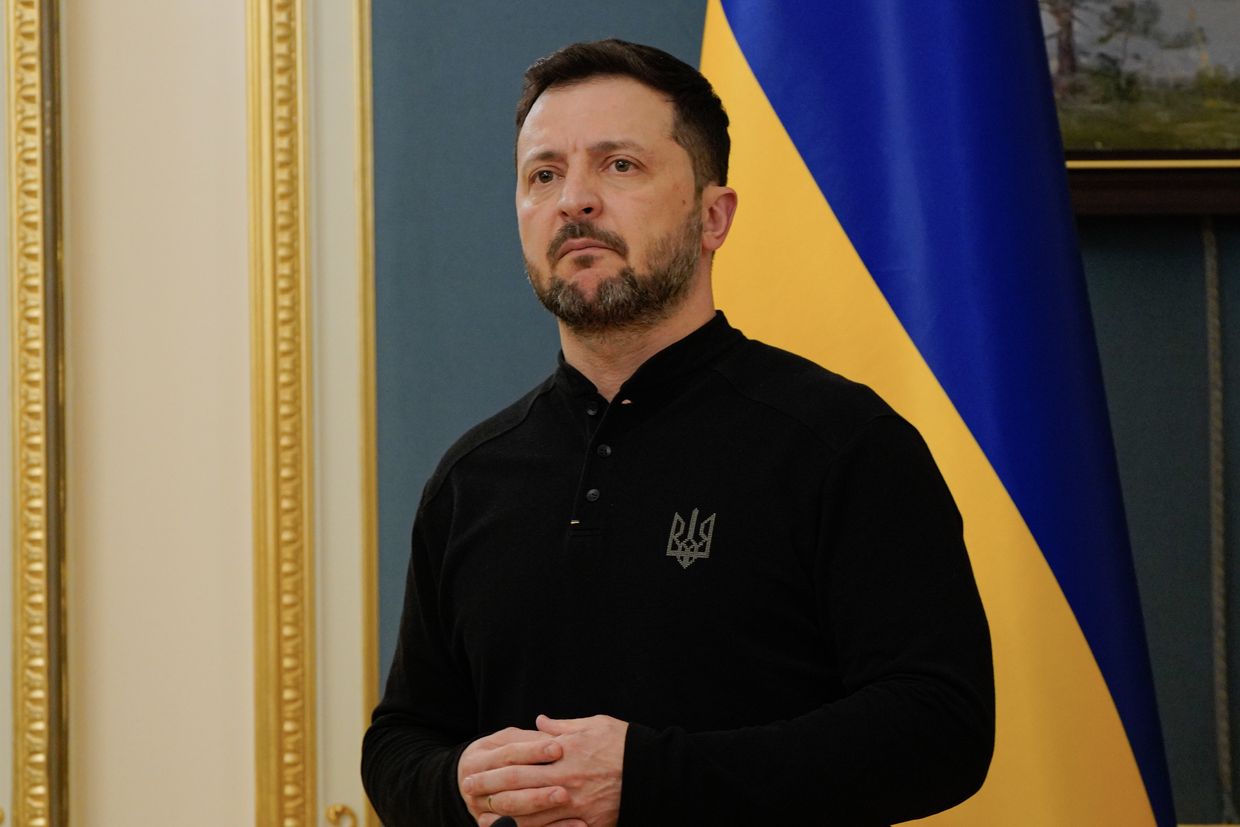"We have a plan B and a plan C. But our focus is plan A, the essence of which is to get everyone's support" for Ukraine's accession, EU foreign policy chief Kaja Kallas said.
"(T)he presence at the Victory Parade of a country that bombs cities, hospitals, and daycares, and which has caused the deaths and injuries of over a million people over three years, is a shame," Polish Prime Minister Donald Tusk said.
"According to the participants of the performances, their goal is to remind the civilized world of the barbaric actions of Moscow, which for many years and decades has systematically violated international law," a source in Ukraine’s military intelligence agency (HUR) told the Kyiv Independent.
"I have great hope that an agreement for a ceasefire in Ukraine will be reached this weekend," German Chancellor Friedrich Merz said on May 9, shortly before traveling to Kyiv alongside the leaders of France, Poland, and the U.K.
U.K. Prime Minister Keir Starmer, French President Emmanuel Macron, German Chancellor Friedrich Merz, and Polish Prime Minister Donald Tusk will arrive in Kyiv early on May 10.
The United States embassy in Kyiv on May 9 issued a warning that Russia could launch "a potentially significant" attack in the coming days, despite Putin's self-declared Victory Day "truce."
The sanctioned oil tankers have transported over $24 billion in cargo since 2024, according to Downing Street. The U.K. has now sanctioned more shadow fleet vessels than any other country.
The sanctions list includes 58 individuals and 74 companies, with 67 Russian enterprises related to military technology.
Washington and its partners are considering additional sanctions if the parties do not observe a ceasefire, with political and technical negotiations between Europe and the U.S. intensifying since last week, Reuters' source said.
Despite the Kremlin's announcement of a May 8–11 truce, heavy fighting continued in multiple regions throughout the front line.
Putin has done in Russia everything that Luiz Inacio Lula da Silva had been against in Brazil.
EU doesn't rule out decoupling Ukraine, Moldova's accession process over Hungary's stance

The EU does not rule out "decoupling" Moldova's accession process from that of Ukraine due to Hungary's opposition to Kyiv's entry, European Commissioner for Enlargement Marta Kos said in an interview with Radio Free Europe/Radio Liberty on April 28.
Ukraine and Moldova jointly launched EU accession talks in June 2024, but Kyiv's efforts have run into resistance from Hungary, which has blocked the opening of the first negotiation chapters.
"We are already discussing with the member states what to do, because no member state opposes the opening of the first group of negotiation chapters with Moldova," Kos said in the interview.
Kyiv and Chisinau were granted membership candidate status in 2022, months after Russia launched its full-scale invasion of Ukraine. Their accession talks have progressed largely hand-in-hand.
Brussels has been a crucial supporter of Ukraine over the past three years, providing security and financial aid to help counter Russian aggression and enact pro-EU reforms.
Hungarian Prime Minister Viktor Orban, broadly seen as the most Russian-friendly leader in the EU, has consistently blocked support for Ukraine and now opposes the country's membership efforts, claiming its entry would "destroy" Hungary.
Budapest has cited Ukraine’s alleged discrimination against its Hungarian minority as a key obstacle — an accusation Kyiv rejects. Hungary has also raised concerns over agriculture and security, referencing the ongoing war with Russia.
"Brussels is thinking in terms of a very fast process," Gergely Gulyas, Hungary's minister for the prime minister's office, said earlier in April while rejecting a fast-tracked membership path.
Hungary plans to hold a so-called national consultation – a non-binding opinion survey often criticized for biased wording and low turnout – on Ukraine's accession later this year.
Despite the government's resistance, recent polls show public support for Ukraine's accession. According to the opposition Tisza party's "Voice of the Nation" initiative, which received over 1.1 million responses, 58.18% of participants backed Ukraine's EU bid.
A separate April 7 poll by the Republikon Institute also found a narrow majority of Hungarians in favor of Ukraine joining the bloc.

Most Popular

After 3 years of full-scale war in Ukraine, Europe announces plan to ban all Russian gas imports

Ukraine, Europe's ceasefire proposal includes US security guarantees, no recognition of Crimea, Reuters reports

Journalist Roshchyna's body missing organs after Russian captivity, investigation says

After Russia's deadly attack on Kyiv, Vance reposts denunciation of Zelensky

Ukrainian sea drone downs Russian fighter jet in 'world-first' strike, intelligence says
Editors' Picks

How medics of Ukraine’s 3rd Assault Brigade deal with horrors of drone warfare

As Russia trains abducted children for war, Ukraine fights uphill battle to bring them home

'I just hate the Russians' — Kyiv district recovers from drone strike as ceasefire remains elusive


